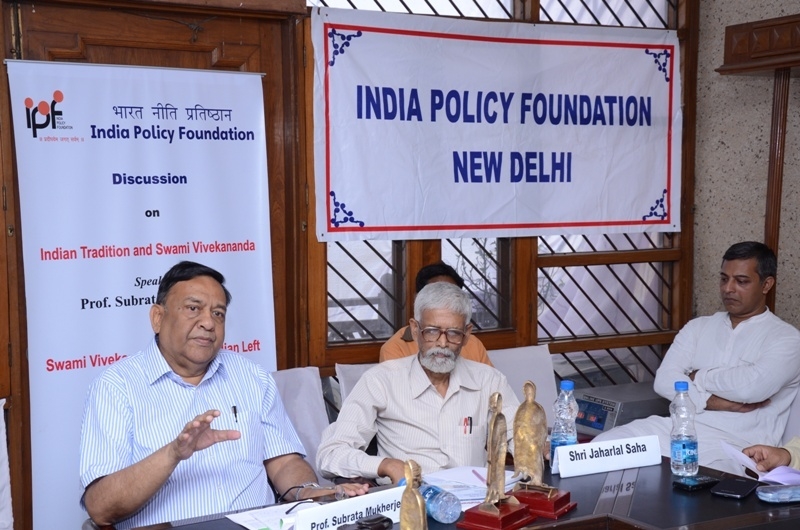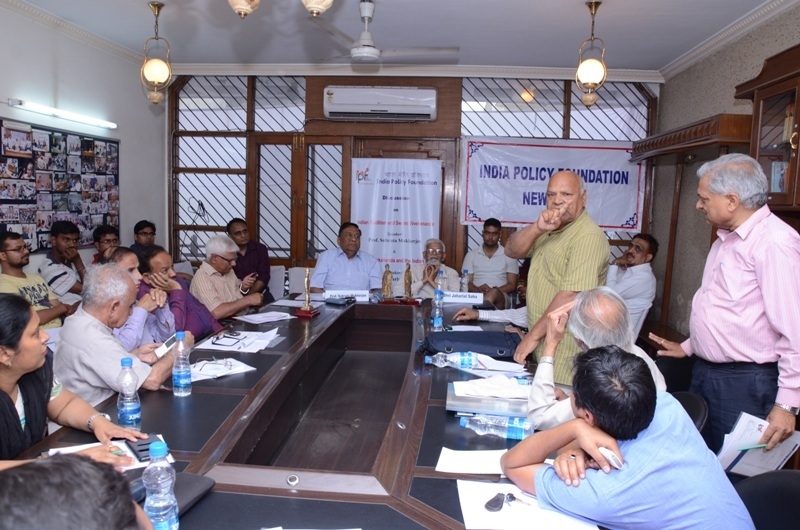SWAMI VIVEKANANDA, INDIAN TRADITION ANDINDIAN LEFT
Total Views |

April 27, 2013, IPF Seminar Hall
Speakers: Shri Jaharlal Saha, Noted Educationist & Social Activist, Guwahati, Assam
Prof. Subrata Mukherjee, Former Head of the Department Political Science, Delhi University
Despite some external commonalities between Vivekananda and Marxist leftists, there are fundamental differences to them. While Swamiji's life and idea are based on the principle of Atman, the doctrine of potential divinity of the soul, taught in Vedanta, Marxist’s ideology is built on the pillar of dialectic materialism which denies any pervading conscious entity intrinsic to the universe. To Vivekananda, religion is the language that expresses spirituality but for Marxists religion is opium to keep the proletariat in trance. Coming to the Indian context Shri Jaharlal Saha said, Indian Left has largely remained hostile towards Vivekananda for different reasons.
While Vivekananda believed in an eternal India of a rich heritage in science, art and religion and is continuing towards a luminous future, Leftists ruled out any distant suggestion of positive contribution of India to the world. Commenting over the treatment that Vivekananda received in hands of Indian Leftists Sh. Saha said, largely it is a case of opportunism. Considering the extreme popularity of the firebrand monk in larger section of the society Marxists tried to remain contextual with occasional appreciations of the leader. But there is a whole range of history to show how CPIM led government in West Bengal harassed Ramakrishna Mission and tried to temper the educational substance of the institution. Shri Saha also highlighted that while Leftists ideologies were put into experiment in several countries, the credibility of which eventually attracted serious questions, Vivekananda is never put into any such test.

Speaking on the topic ‘Swami Vivekananda in Indian Tradition’ Prof. Subrata Mukherjee said Gokhle and Rammohan Roy are predecessors of Vivekananda in modernizing Indian society. He said there is need of conducting impartial, serious studies on Vivekananda rather than making him out of the reach of academicians. Vivekananda through the prism of subaltern studies, feminist studies and post-modern studies can bring new perspective in understanding the leader and his time.